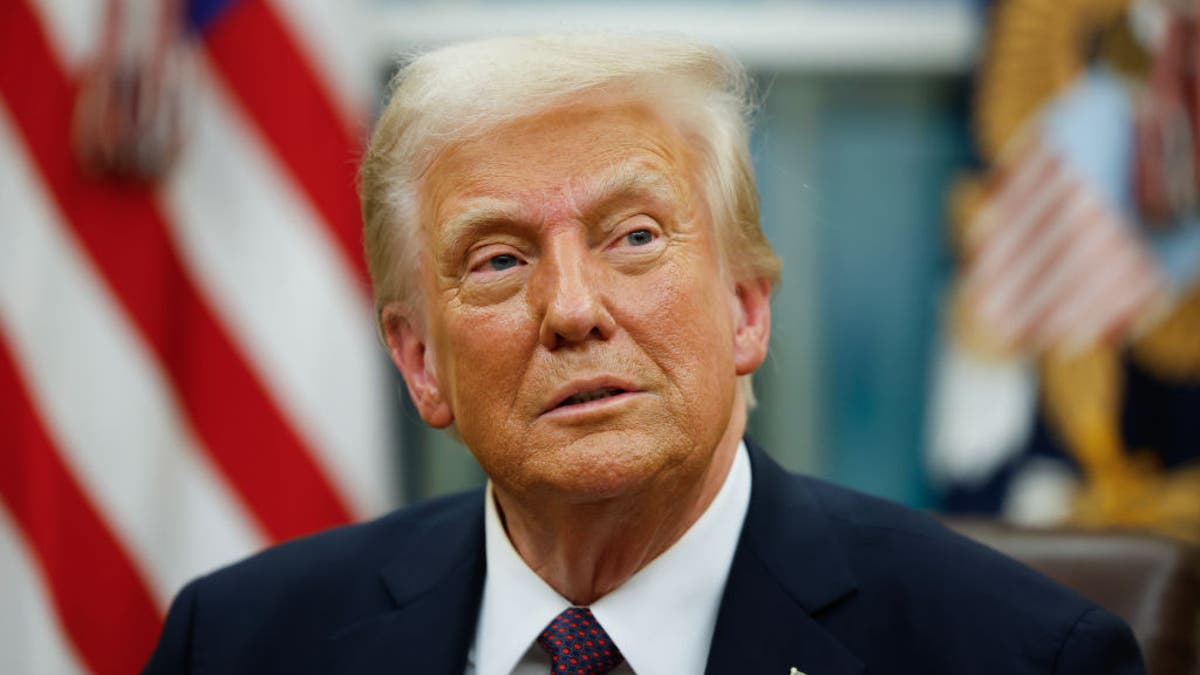Two federal judges in Texas and New York on Wednesday temporarily blocked the Trump administration‘s use of the Alien Enemies Act to deport Venezuelan nationals — the latest in a high-profile legal saga centered on the administration’s use of a wartime immigration law to immediately deport certain migrants.
Plaintiffs filed two separate lawsuits asking federal judges in Brownsville, Texas, and Orange County, New York, to grant a temporary restraining order blocking their removals under the 1798 wartime immigration law that was reviewed by the Supreme Court just days earlier.
U.S. District Judge Fernando Rodriguez Jr., in Brownsville granted a temporary restraining order filed on behalf of three Venezuelan nationals. The order temporarily blocks their removal under the AEA, as well as the removal of “any other person that Respondents claim are subject to removal under the Proclamation” from the district’s El Valle Detention Center, according to the text of his ruling.
Rodriguez, a Trump appointee, sided with plaintiffs’ contention that allowing the law to be used for their deportations would likely cause “immediate and irreparable injury to the removed individuals,” whom he said would likely be “unable to seek habeas relief.”
JUDGE BOASBERG POISED TO HOLD TRUMP ADMIN IN CONTEMPT, TAKES DOWN NAMES OF DHS OFFICIALS: ‘PRETTY SKETCHY’
Prison officers stand guard a cell block at the maximum security penitentiary CECOT (Center for the Compulsory Housing of Terrorism) in Tecoluca, San Vicente, El Salvador, on Friday. (Alex Peña/Getty Images)
In addition, he said, the “substantial likelihood exists that the individual could not be returned to the United States” if deported.
Rodriguez said he will hear from both parties in court again Friday to consider whether to continue extending the 14-day emergency order.
In the New York case filed in Manhattan federal court, U.S. District Judge Alvin Hellerstein — a Clinton appointee — sided with two Venezuelan nationals whose attorneys argued they likely wouldn’t have time to seek the habeas relief granted by the Supreme Court in its emergency ruling.

Venezuelan migrants walk following their arrival on a flight after being deported from the U.S. in Caracas, Venezuela, on March 24. (Reuters/Leonardo Fernandez Viloria)
Both clients, “and others similarly situated to them,” are now “all at imminent risk of removal” by the Trump administration without proper notice, lawyers said in the filing.
Hellerstein’s ruling, unlike that of the federal judge in Texas, stopped short of directly addressing whether the Alien Enemies Act is an appropriate legal basis for deporting the two individuals, though it temporarily blocks the law from being used to remove them.
The updates follow a 5–4 Supreme Court ruling on Monday that lifted a lower court’s restraining order, allowing the Trump administration to temporarily resume use of the Alien Enemies Act — albeit with new due process protections for migrants.
JUDGE BLOCKS TRUMP ADMIN FROM FIRING FEDERAL PROBATIONARY WORKERS

President Donald Trump signs executive orders in the Oval Office. (Anna Moneymaker/Getty Images)
The high court said individuals slated for deportation must have the opportunity to challenge their removal, with sufficient time to do so in a U.S. court.
But the proceedings must take place in the federal jurisdictions where detainees are held — raising concerns among immigration advocates, who note that these cases are often difficult to bring individually and typically occur in court districts where most migrants are detained.
“Whether or not you’re a gang member, the Alien Enemies Act cannot be used under these circumstances,” lawyers for the ACLU said in an earlier court filing, noting that the Alien Enemies Act “is a military authority.”
“It is not supposed to be used in peacetime against a gang,” they said.
CLICK HERE TO GET THE FOX NEWS APP
In granting the temporary restraining order, Rodriguez, the Trump appointee, agreed with the plaintiffs’ argument that “maintaining the status quo is required to afford the parties the ability to develop a fuller record for the Court to consider the request for a preliminary injunction and other forms of relief,” and to “prevent the immediate and irreparable injury that may occur with the immediate removal of any Venezuelan alien subject to the Proclamation.”
“Furthermore, if the United States erroneously removed an individual to another country based on the Proclamation, a substantial likelihood exists that the individual could not be returned to the United States,” he said.
Lawyers for the Trump administration had urged the court to vacate the lower court ruling, arguing in a Supreme Court filing that the lower court orders “rebuffed” their immigration agenda, including their ability “to protect the Nation against foreign terrorist organizations and risk debilitating effects for delicate foreign negotiations.”







